 Imagine you had to invent a new kind of atlas which showed the extent of our planet’s economic and cultural globalization, and the interconnections between the world’s environmental crises. That’s the aim of the ATLAS of Interdependence, a project being masterminded by the new economics foundation, the Open University and Sheffield University. The ATLAS will be an evolving online resource containing entries from geologists, geographers, scientists, journalists, artists, campaigners and historians, each providing their personal vision of global interdependence. Here is a sneak preview of my own entry, called the Global Map of the Empathic Imagination. Do let me know if you think it needs any additional landmarks. Continue reading
Imagine you had to invent a new kind of atlas which showed the extent of our planet’s economic and cultural globalization, and the interconnections between the world’s environmental crises. That’s the aim of the ATLAS of Interdependence, a project being masterminded by the new economics foundation, the Open University and Sheffield University. The ATLAS will be an evolving online resource containing entries from geologists, geographers, scientists, journalists, artists, campaigners and historians, each providing their personal vision of global interdependence. Here is a sneak preview of my own entry, called the Global Map of the Empathic Imagination. Do let me know if you think it needs any additional landmarks. Continue reading
Plato's Symposium at the Latitude Festival
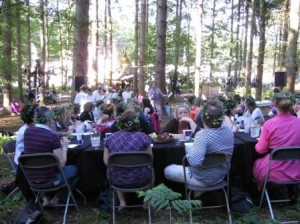
I don’t wear a mauve toga very often. But it was my fashion item of choice at this year’s Latitude Festival, the annual extravaganza of music, theatre, comedy and literature held deep in the Suffolk countryside. On behalf of The School of Life, I hosted one of the more unusual events on the programme – a recreation of Plato’s Symposium, the first great conversation in the history of the art of living. Continue reading
Who was the greatest Victorian traveller? A fish collector
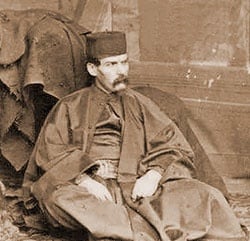
Who was the greatest traveller of the Victorian era? Amongst the usual top contenders you will find the name of Sir Richard Francis Burton. Best known for translating The Thousand and One Nights from Arabic and for visiting Mecca in 1853 disguised as a Muslim pilgrim, Burton wandered for years throughout the Middle East, Far East and Africa. He had an extraordinary talent for languages – he could speak twenty-nine of them – and was a master of assimilating himself into local cultures. Just after his death in 1890 he was described as ‘a Mohammedan among Mohammedans, a Mormon among Mormons, a Sufi among the Shazlis, and a Catholic among the Catholics.’ Continue reading
Is World Cup fever a nationalistic disease?
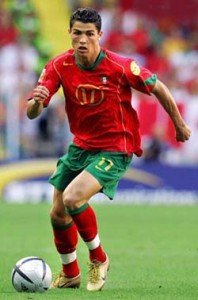
As football fever envelops the planet, with all eyes turned towards South Africa, I want you to imagine a different World Cup. Each country sends their national team as usual, but then all the players are pooled together and divided into teams based on their astrological star sign. So Virgos play Leos, and Aquarians are pitted against Aries, with each team having players from a mix of countries. Who would win overall? Perhaps the power of Taurus, the bull, would be no match for the sharp sting of Scorpio. We might imagine other World Cups, where teams are based on shoe size – the clodhopping size elevens against the nimble-toed eights – or maybe the favourite colour of each player. Continue reading
Monkeys, mirror neurons and the empathic brain
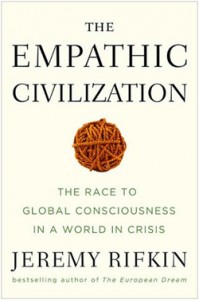 At a recent talk at the Royal Society of the Arts in London, the American economist and social critic Jeremy Rifkin gave a brilliant overview of his new book, The Empathic Civilization. Part of his argument that we should think about ourselves as Homo empathicus – empathic by nature – rests on some of the recent research in neuroscience that appears to demonstrate we have empathic brains. But what is the science really telling us? Continue reading
At a recent talk at the Royal Society of the Arts in London, the American economist and social critic Jeremy Rifkin gave a brilliant overview of his new book, The Empathic Civilization. Part of his argument that we should think about ourselves as Homo empathicus – empathic by nature – rests on some of the recent research in neuroscience that appears to demonstrate we have empathic brains. But what is the science really telling us? Continue reading
What it feels like to drop an atomic bomb

In May 2010 I went to an entertaining talk by the writer Malcolm Gladwell, author of The Tipping Point, Blink and other bestsellers. Midway through he made a throwaway comment about the bombing of Hiroshima in August 1945. ‘Imagine how it felt to be the pilot who dropped the bomb on Hiroshima – how do we feel about that kind of moral responsibility?’ The implication of this rhetorical question was that the pilot must have been desperately wrestling with the ethical consequences and dilemmas of releasing the world’s first atomic weapon on the unsuspecting city. Continue reading
Podcast: Radical Art of Living interview
Download (right-click to save file) | Open Player in New Window
This week I was the guest on Elese Coit’s ‘A New Way to Handle Absolutely Everything’ radio show in Seattle. We spoke together on the subject of ‘Empathy, the Radical Art of Living’.Election Special: Empathy and Immigration Policy
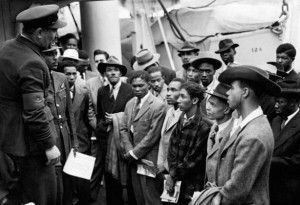
The upcoming British general election on May 6 raises the possibility for a new dawn in empathy-based politics. Or not. My review of the election manifestos of the major parties – Labour, Conservative, Liberal Democrat and Green – reveals that the word ‘empathy’ is not mentioned a single time in any of them (out of a total 356 pages of text). This is rather different from the last US presidential election, when Barack Obama mentioned ‘empathy’ in almost every speech he made. Continue reading
How to empathise with a hedgehog
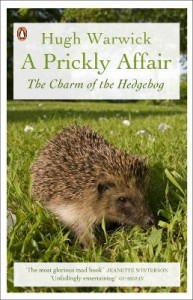 Although you may not have spent much time contemplating the character of hedgehogs and our relationship with them, I know a man who has. Ecologist Hugh Warwick is the author of a brilliantly funny and engaging book called A Prickly Affair: The Charm of the Hedgehog, which has just come out in paperback, receiving rave reviews in The Guardian and elsewhere. I spoke with him about his mania for hedgehogs and what his researches around the world – he tracked down a hedgehog in China named Hugh and attended the International Hedgehog Olympic Games in the Rocky Mountains – reveal about our understanding of human empathy with animals. Continue reading
Although you may not have spent much time contemplating the character of hedgehogs and our relationship with them, I know a man who has. Ecologist Hugh Warwick is the author of a brilliantly funny and engaging book called A Prickly Affair: The Charm of the Hedgehog, which has just come out in paperback, receiving rave reviews in The Guardian and elsewhere. I spoke with him about his mania for hedgehogs and what his researches around the world – he tracked down a hedgehog in China named Hugh and attended the International Hedgehog Olympic Games in the Rocky Mountains – reveal about our understanding of human empathy with animals. Continue reading
The Empathy Top Five: Who are the greatest empathists of all time?
The moment has finally come for the Outrospection blog to put its cards on the table and boldly declare who are the greatest empathists of all time. Our selection committee has been painstakingly deliberating over the choices for several months, and you might well be surprised by the results. No, Barack Obama does not appear in our top five, even though he believes ‘the empathy deficit’ to be the greatest scourge of modern society. And not even famed empathetic individuals such as the Dalai Lama, Mother Teresa or Jesus Christ have shown what it takes to make the grade. Continue reading